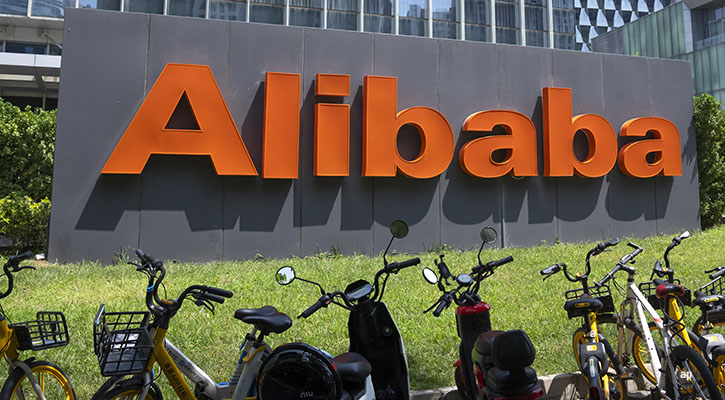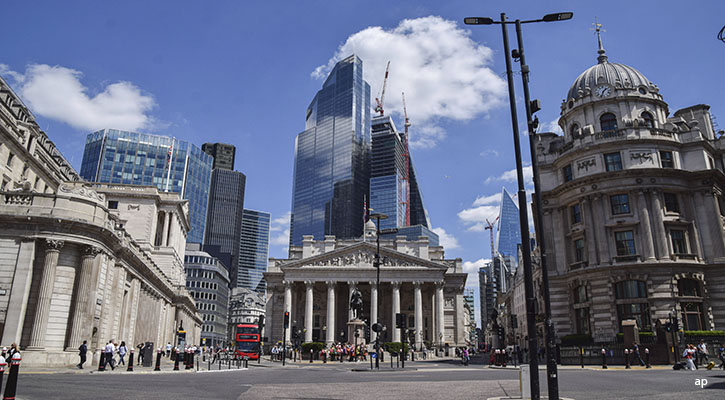
Voting in Indian elections are in full swing and will end on June 1. But investors already seem to have voted in favour of Indian stocks.
According to Morningstar estimates, more than €3 billion (£2.58 billion) flowed into European funds and exchange-traded funds (ETFs) specialising in Indian equities in the first quarter of 2024. Over the this period, organic growth (flows in relation to initial assets) was 9.6%, for assets under management of more than €37 billion (it was € 32.5 billion at the end of 2023).
With the exception of the first three months of 2023, net inflows for India equity funds have been consistently positive since the third quarter of 2022. But what should investors expect from the general election that will bring more than 900 million citizens to the polls?
Modi is Favoured for Election Victory
"Indian elections are notoriously complex and difficult to predict, but after a decade of solid growth, the consensus suggests that Narendra Modi will secure a third term," says Amol Gogate, manager of the Carmignac Portfolio Emerging Discovery fund. "Should Modi be re-elected, there is likely to be a turning point in India's growth story."
On the likely re-election of Modi and the Bharatiya Janata Party (BJP), other managers and observers also have little doubt. Chetan Sehgal, portfolio manager of the Templeton Emerging Markets Investment Trust (TEM), predicts that the current prime minister's victory is very likely. Jason Hollands, managing director of the investment platform Bestinvest, is also on the same line, pointing out that this would be one of India's longest periods of political stability since independence.
The country overtook China in terms of economic expansion in 2023 and it is expected that the gap could widen. In its April World Economic Outlook, the International Monetary Fund estimated real gross domestic [roduct (GDP) growth of 6.8% in 2024-25, while China is expected to grow by 4.6% this year. In 2023, the IMF estimated an increase in India's GDP of 7.8% compared to +5.2% for China.
In addition, the government's monetary policy, supported by the Reserve Bank of India, has helped keep inflation under control (+4.6% is the IMF forecast for this year) and the social and welfare reforms promoted by Modi have fostered economic development.
Is the Indian Stock Market Overvalued?
If the economic data does not cause any particular concern, the rally in the Mumbai Stock Exchange (+36.9% in euro terms the Morningstar India index in the last year to May 7, 2024) has already generated some fears that stocks are now overvalued.
However, Gogate argues that a Modi victory would set the stage for an acceleration of the economy and keep India attractive from a long-term perspective for two reasons:
1) The internationalisation of financial markets: the inclusion of Indian government bonds in the JP Morgan GBI-EM emerging markets index in June 2024 and Indian bonds in the Bloomberg EM local currency index in September could bring up to $40 billion (£32 billion) in foreign investment, according to Carmignac.
2) A financial system that favours entrepreneurship. “In this phase of rapid expansion, investors can identify interesting and innovative companies in many sectors, including financial services, high-end manufacturing, specific consumer segments and real estate,” says Gogate, but urges caution about the valuations of individual stocks.
What are the Risks for Investors in the Indian Market?
In the short term, Modi's victory is already a foregone conclusion in market expectations. The elections, therefore, should not cause major price swings unless there is a worse-than-expected surprise result for the BJP party. On the other hand, his confirmation would immediately put him in front of the need to deliver on his promises, first and foremost to grow GDP to $5 trillion by 2027 from the current $3.7 billion and to attract foreign investment under the 'Make in India' programme.
"Key themes in the BJP's manifesto include extending access to welfare, job creation and further investment in infrastructure, such as plans to extend the reach of high-speed trains," Bestinvest's Hollands explains.
Also in the short term, however, investors should be aware that other factors could influence the financial market. As a net importer of oil, for instance, it could be affected by inflationary pressures related to rising crude oil prices. Moreover, to continue growing, Modi will have to boost exports. In this direction, negotiations are ongoing with both the EU and the UK.
Apple and Tesla Set Course for India
India also faces the challenge and opportunity of being one of the main beneficiaries of many companies' reduction of dependence on supplies from China. Apple (AAPL), for instance, is reportedly close to an agreement with two Indian companies (Titan and Murgrappa) to assemble camera components for the iPhone. "Apple has already significantly shifted production to India, where it produced 14% of its iPhones last year," says Hollands. "Another company believed to be targeting expansion into India is Tesla, which is expected to announce major investment plans following the Indian government's cuts to import tariffs on electric vehicles last month."
Reasons for Caution on India Stocks
In 2023, the Indian stock market decisively outperformed emerging stock markets, rising 20.8% in euro terms, compared to +7.7% for the Morningstar Emerging Markets index. It is also in an advantageous position in the year to date (+10.4% vs +7.3% as of May 6, 2024). Some managers, therefore, urge caution.
"India offers investors a significant growth opportunity due to its structural factors, including attractive demographics, a market-oriented economy and a growing middle class. However, these solid growth prospects are reflected in the valuations of many stocks, which trade at a higher price than other emerging markets," says Franklin Templeton's Sehgal.
"We remain selective in the companies we invest in and favour those that have sustainable earnings power and whose share prices are at a discount to our estimate of their intrinsic value."




























